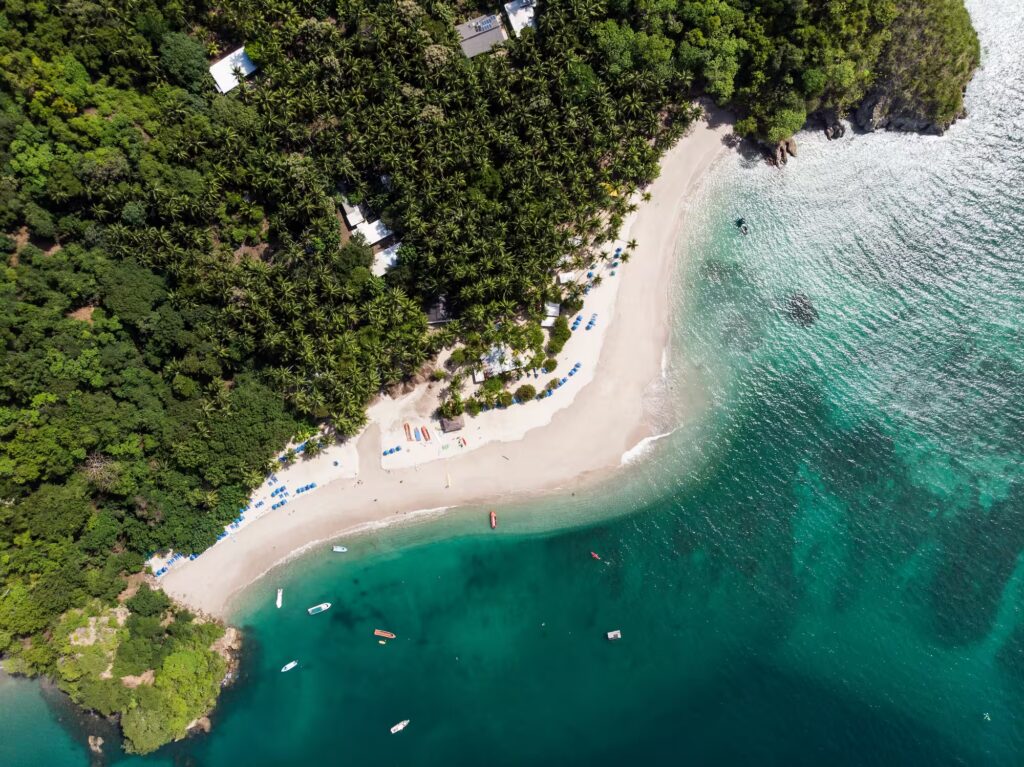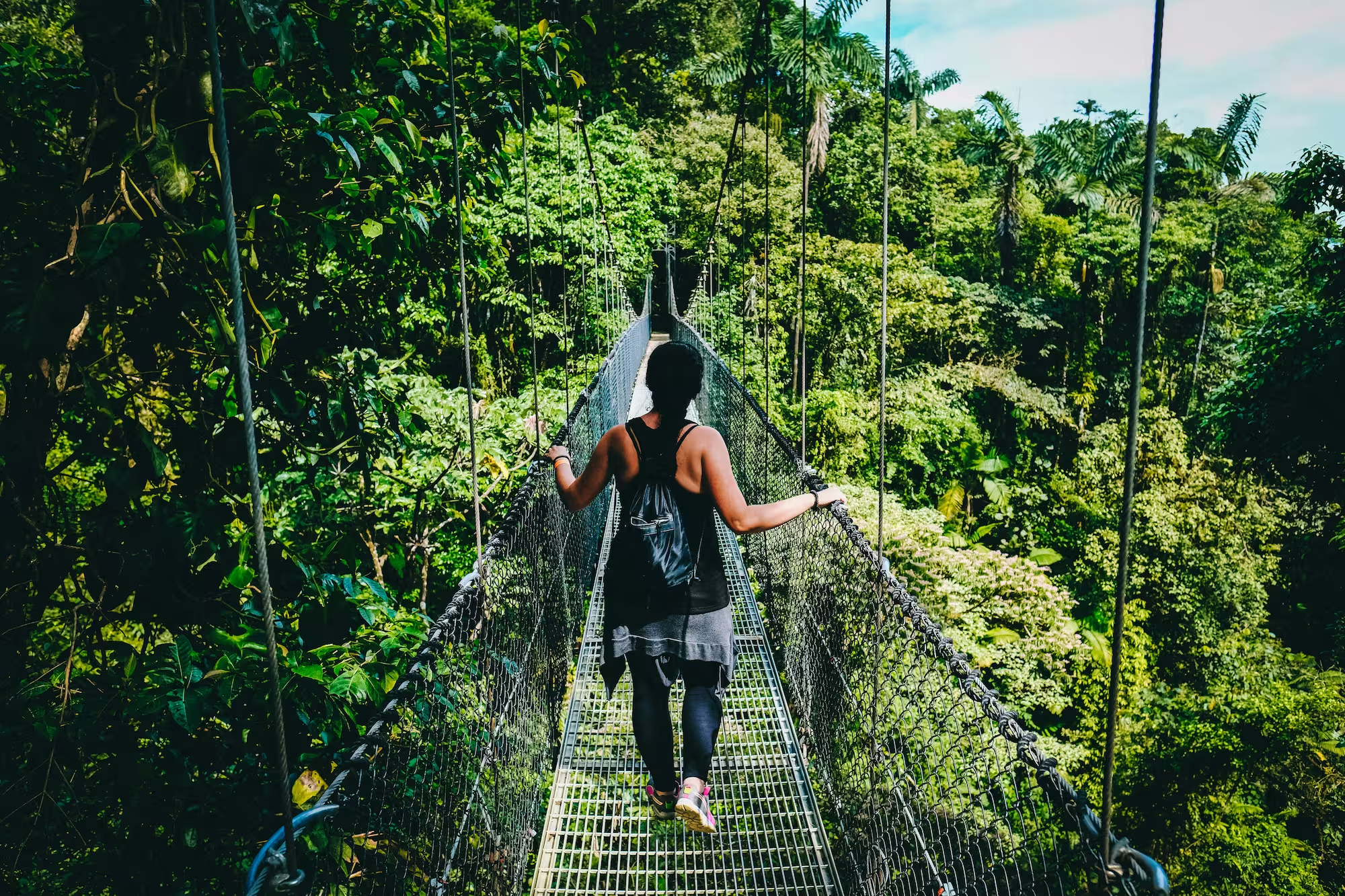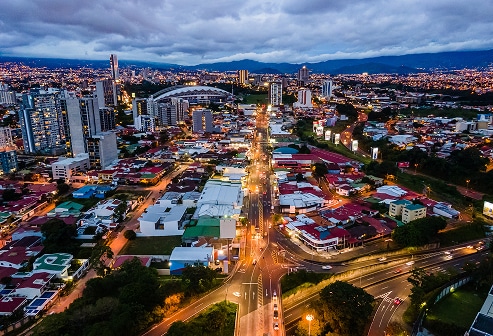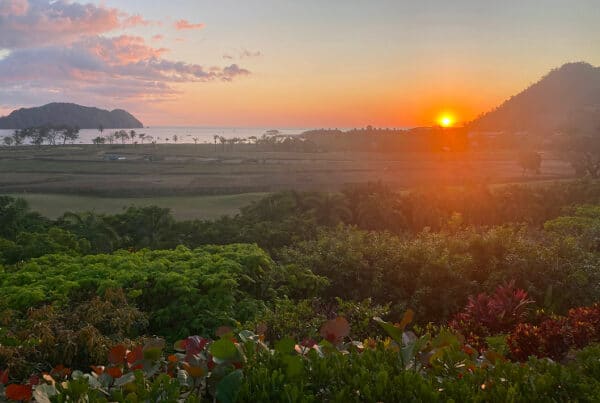Why U.S. Buyers Are Flocking to Costa Rica & Why Financing Still Feels Murky
Owning property in Costa Rica feels like a dream: year-round sunshine, lush jungle backdrops, beautiful beaches, and a slower pace of life that’s hard to replicate back home. But if you’re a U.S. citizen wondering how to finance property in Costa Rica, you’ve likely hit a wall. Between language barriers, non-U.S. lending standards, and a lack of clear guidance online, most buyers assume it’s either too complicated or just not possible. Here’s the truth: Financing property in Costa Rica is very possible; you just need the right guide. This article walks you through:- What U.S. citizens need to know about Costa Rican real estate laws
- All your Costa Rica home loan options
- Closing costs, taxes, and timelines to expect
- Why working with a U.S.-regulated lender like Volo Loans can save time, money, and stress

Can Foreigners Buy Property in Costa Rica? Yes, With Rights Equal to Locals
Costa Rica is one of the most foreign-investor-friendly countries in Latin America. Unlike in some nations, foreigners in Costa Rica enjoy the same property rights, with few exceptions, as citizens. You don’t need residency. You don’t need to form a local partnership. You can own property outright, in your name, or through a legal entity.What About Beachfront Properties?
Costa Rica’s Maritime Zone Law restricts direct ownership of beachfront land (the first 200 meters from the high tide line), but concession leases are possible. If you’re buying near the beach, make sure your legal team reviews zoning and concession laws thoroughly.Understanding the Legal Process of Buying Property in Costa Rica
Buying real estate in Costa Rica isn’t drastically different from the U.S., but there are unique local nuances. Here’s what you need to know:1. Find the Property (But Know: No MLS)
Costa Rica does not have a centralized Multiple Listing Service that all agents and brokerages use. Listings are often fragmented across brokers, websites, or even WhatsApp threads. Work with a vetted agent familiar with expat transactions.2. Hire a Bilingual Real Estate Attorney
Absolutely non-negotiable. This is one of the most important decisions you will make. Not all attorneys are created equal. Be sure that they specialize in real estate. Your real estate attorney will:- Verify a clear title and property ownership
- Draft and review purchase-sale agreements
- Oversee the escrow and closing process
- Ensure compliance with Costa Rican law
- Protect your interests
3. Due Diligence + Escrow
Once under contract, the due diligence period begins. Escrow is often managed by licensed trust companies (like Secure Title, Secure Escrow & Disbursement, Meridian Title, BLP Legal, or Stewart Title Latin America). Expect:- Property inspections
- Title search
- Corporate structure vetting (if the property is owned via an LLC)
4. Closing
Closings typically occur at the notary’s office. The notary and your real estate attorney register the sale with the National Registry. You’ll receive a deed (escritura pública) and be registered as the legal owner.Your Costa Rica Financing Options: What Works, What Doesn’t, and What Actually Makes Sense
While buying property in cash is still common in Costa Rica, especially among locals and international investors, many U.S. citizens want the same convenience and structure they’d expect back home: regulated financing, predictable terms, and the ability to conserve liquidity. The good news? You have options. The key is knowing which ones are viable and which come with caveats. Whether you’re a first-time international buyer or a seasoned investor, understanding the pros, cons, and realistic availability of each financing path can save you months of frustration and tens of thousands of dollars.1. Local Costa Rican Bank Loans
Local banks such as Banco Nacional, BAC Credomatic, and Scotiabank do offer mortgage loans. However, local Costa Rican bank loans are typically geared toward Costa Rican citizens or permanent residents with documented local income. While foreigners can technically apply, the barriers to approval are steep.Key Challenges:
- Costa Rican banks often demand large down payments, requiring 30% to 50% upfront, sometimes even more for foreign buyers.
- Lenders require U.S. income documents to be translated and apostilled, a process that adds complexity and slows things down.
- Underwriters typically take 6 to 12 months to process applications, and they rarely provide updates along the way.
- Banks offer variable interest rates with shorter terms, often without rate caps or clear amortization schedules, making long-term planning difficult. Most loans are 15 to 20 years, which makes monthly payments less affordable.
- Banks require expensive life insurance policies with themselves as the beneficiaries. This adds additional expense, increases your effective interest rate and is a cumbersome process that requires in-country blood tests for approval.
- Age discrimination is prohibited in the United States, but is perfectly acceptable in Costa Rica. If you are a 50-year-old borrower, you will never be approved for a 20+ year loan.
- Pre-Payment Penalties. If you pay the loan off early, many of the banks will charge between 2-5% of the loan amount as an early payment penalty.
- Some institutions issue loans in Costa Rican colones, which exposes U.S. borrowers to currency fluctuation risk if their income is in dollars.
2. Owner Financing
Seller financing is more common in Costa Rica than in the U.S., especially in beach towns, resort areas, or regions popular with expats. In these cases, the seller essentially becomes the lender, and you make monthly payments directly to them.What to Expect:
- Short Terms: Most agreements last 2–5 years and end with a large balloon payment.
- Large Down Payments: Sellers often require at least 50% down to protect their equity.
- Flexible Interest Rates: Rates are negotiable but usually higher than market rates (10% to 15% is typical).
- Informal Process: Some agreements are drafted by private attorneys and may lack full legal protection.
- No Credit Check: This can be a plus for buyers with non-traditional financial profiles or retirees with strong assets but lower monthly income.
3. Developer Financing
In some gated communities, especially those with on-site sales offices or affiliated real estate brokers, developers will offer short-term financing to encourage quicker closings. Developer financing is popular in high-demand real estate markets like Guanacaste, Escazú, or Manuel Antonio.Pros:
- Easier Qualification: Often fewer hoops to jump through compared to banks.
- Bundled Incentives: Some real estate developers include furnishings, legal fees, or payment holidays.
- Fast Turnaround: Ideal for foreign buyers who want to close quickly on new construction.
Cons:
- Short Payback Periods: Loans rarely extend beyond 5 years.
- Higher Interest Rates:It is not uncommon for rates to range between 10% to 12%.
- Pre-Payment Penalties can be equal up to 3-5% of the loan amount.
- Inflated Prices: Developers may bake the cost of financing into the sale price.
- Lack of Regulation: These agreements are private and may not be backed by the same consumer protections as formal mortgages.
4. U.S.-Regulated Loans from Volo Loans
This is where Volo Loans changes the game. We’re not a Costa Rican bank, and we’re not a developer with a hidden agenda. We’re a U.S.-based Lender that offers residential real estate loans for Americans purchasing a home abroad or refinancing property in Costa Rica.What Makes Volo Different?
- U.S.-Regulated Structure: Your loan is processed, funded, and serviced entirely in the U.S., under familiar standards and protections.
- No Local Credit Needed: Your U.S. financial profile is what matters, not whether you’ve lived in Costa Rica.
- Multiple Loan Types: We offer 30-Year Fixed, 7/6 ARM, and 5/6 ARM, all with 30-year amortizations, to help keep monthly payments low and affordable.
- We do not require expensive life insurance as part of the loan.
- We do not charge expensive Pre-Payment Penalties.
- Volo Loans has been funding loans in Costa Rica for years. Our experienced team of US mortgage professionals brings decades of lending expertise to ensure your loan goes smoothly.
Who It’s For:
- Vacation home buyers
- Anyone interested in Overnight Rentals (like AirBnb, VRBO, etc)
- Retirees moving to Costa Rica full-time
- Digital nomads ready to buy instead of rent
- Investors seeking to refinance or leverage existing equity

The Real Costs of Buying Property in Costa Rica
Property prices in Costa Rica can be surprisingly reasonable, but buyers should budget for costs beyond the purchase price. These include mandatory government taxes, professional fees, and common (but often overlooked) expenses like escrow or HOA dues.Closing Costs
- Legal Fees: $1,500–$3,000 for standard residential deals. This includes contract review, title search, and property due diligence services.
- Notary Fees: Typically 1.25% of the declared sale price, required by law.
- Transfer Taxes & Stamps: 1.5% of the registered property value.
- Escrow Fees: Usually split between buyer and seller. Expect 0.25–0.5% of the purchase price.
- Third-Party Fees: Appraisals, Surveys, or Home Inspections (optional). Each of these services can range between $600 and $2500, depending on location and size/price of the home.
- Lender Fees: Depending on which lender you use, you could expect to pay between 2% and 5% of the loan amount.
Taxes
- Transfer Tax: One-time tax paid at closing.
- Annual Property Tax: Just 0.25% of the registered value—much lower than in most U.S. states.
- Luxury Tax: Applies to homes with a construction value over ~₡137M (about $250,000 USD), assessed on a sliding scale.
- Capital Gains Tax: May apply if you resell within 2 years, depending on residency and exemptions.
Other Expenses to Consider
- HOA Fees: Range from $100 to $500/month, depending on the community.
- Homeowners Insurance: Affordable by U.S. standards; often bundled with natural disaster coverage.
- Utilities & Maintenance: Factor in gardener, pool cleaning, caretakers, or property managers if you don’t live there full-time.
- Bank Fees: For international wire transfers or cross-border document services.
Timeline: How Long Does It Take to Close in Costa Rica?
Every financing path has a different timeline, and delays are not uncommon in international real estate. Let’s compare these timelines side by side:| Lending Type | Typical Time to Close | Major Delays |
| Local Bank | 6–12 months | Bureaucracy, translation, slow approvals |
| Owner Financing | 30–60 days | Due diligence, document gaps |
| Developer Financing | 30–90 days | Title checks, incomplete builds |
| Volo Loans | 30–45 days | Title or escrow delays (rare, resolved quickly) |
Local Bank Loans
- Application to closing: 6–12 months
- Slowdowns: Legalization of documents, foreign income verification, inconsistent communication, and several rounds of review prior to approval.
Owner or Developer Financing
- Closing time: 30–90 days
- Risks: Incomplete paperwork, unclear title, or last-minute changes to terms.
Home Loan with Volo Loans
- Pre-qualification: 1–3 business days
- Underwriting: 2–4 weeks
- Closing: Typically 30–45 days from application





